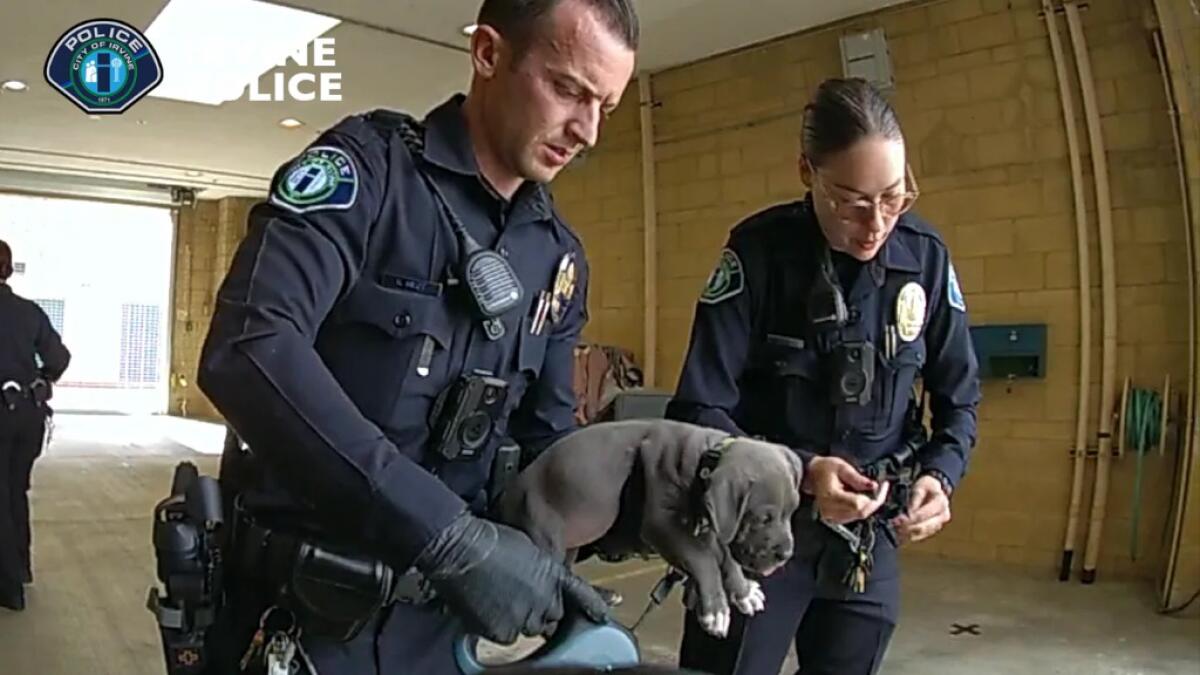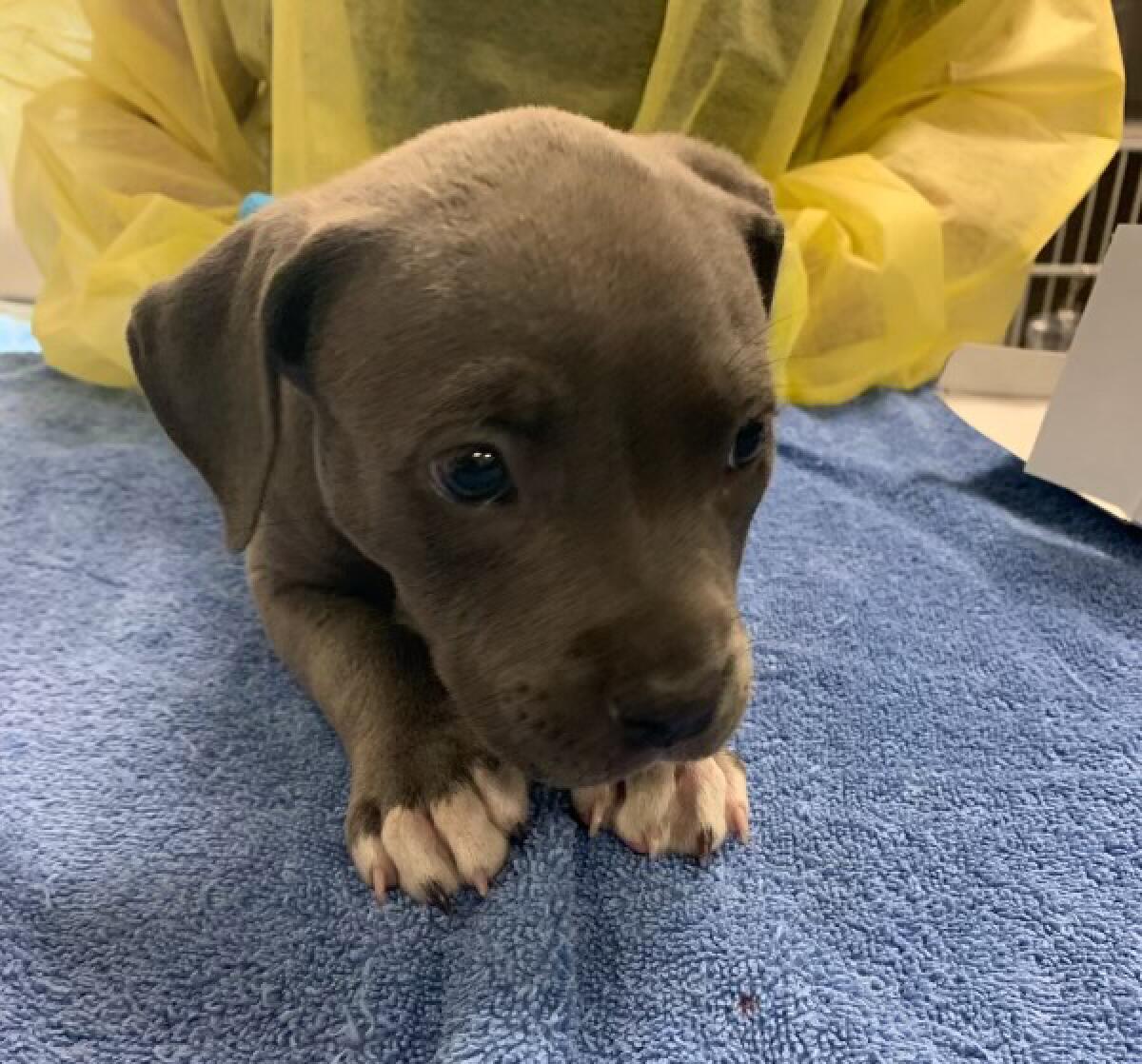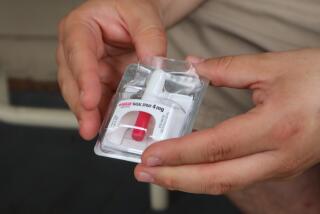Police give overdose-reversing drug to puppy after possible fentanyl exposure

Last week, Irvine police officers gave the overdose-reversing drug naloxone to a pit bull puppy that they believed might have been exposed to fentanyl.
The animal made a quick recovery, but authorities said its owners were arrested and could now face charges.
The incident began Wednesday when Irvine officers began talking to a man and a woman outside a Walmart. The pair were in the parking lot, where they had their months-old puppy in the car. The interaction with police began as a “consensual” encounter, said an Irvine Police Department spokesman, and ended in the arrest of the pair after officers’ discovery of what they said was fentanyl.
It’s not clear how much of the substance police recovered, or whether they found it on the suspects or in their vehicle. But afterward, police drove both arrestees and their dog to the station.
“Then the female said, ‘Oh, I think my dog is overdosing,’” department spokesman Kyle Oldoerp told The Times on Saturday. “She knew the symptoms because it was the second time the dog had overdosed.”

He said it wasn’t immediately clear how the dog would have been exposed to the drug, which is up to 50 times more powerful than heroin. A dose as small as 2 milligrams can be fatal to a human, though dogs are much less sensitive to the drug.
“Maybe it was a baggie on the ground of the car; we really don’t know,” Oldoerp said. “If they’re using drugs in their car, we can only speculate.”
At the station, officers administered naloxone to the dog, who made a “pretty quick” turnaround, Oldoerp said.
Afterward, the couple were cited and released, though police have asked the Orange County district attorney to charge them both with felony animal cruelty and possession of narcotics.
“We wanted to be sure we knew the outcome of the dog before we actually charged them,” Oldoerp said.
He added that authorities held on to the puppy, who will stay in city custody until there is a hearing to determine whether to give the animal back.
Fentanyl has been infiltrating illicit-drug supplies across the U.S. for roughly a decade, since traffickers seized on it as a cheaper alternative to traditional opiates. Authorities have repeatedly warned that many pills and powders sold as other opioids are now tainted with fentanyl.
Experts say that the drug’s strength has fueled an increase in opioid fatalities. In 2021, federal data showed that more than 70,000 people died of opioid overdoses, primarily after ingesting fentanyl.
To combat the growing problem, in March the U.S. Food and Drug Administration approved a nasal spray version of naloxone for over-the-counter sales. The drug works to reverse overdoses by binding to the body’s opioid receptors and blocking other opioids such as heroin or fentanyl. It also works in animals and has been used in veterinary and hospital settings for years.
There is a common misconception — often spread by police and reported in the media — that people can overdose from touching or inhaling the drug. Medical experts say that is not true.
“It is not possible to overdose by touching or accidentally inhaling fentanyl, and the same would apply to non-human animals as well,” Leo Beletsky, a professor of law and health sciences at Northeastern University, told The Times on Saturday. Because the drug is poorly absorbed through the stomach, he said, an animal would probably have to ingest the substance through its nose in order to overdose.
More to Read
Sign up for Essential California
The most important California stories and recommendations in your inbox every morning.
You may occasionally receive promotional content from the Los Angeles Times.











